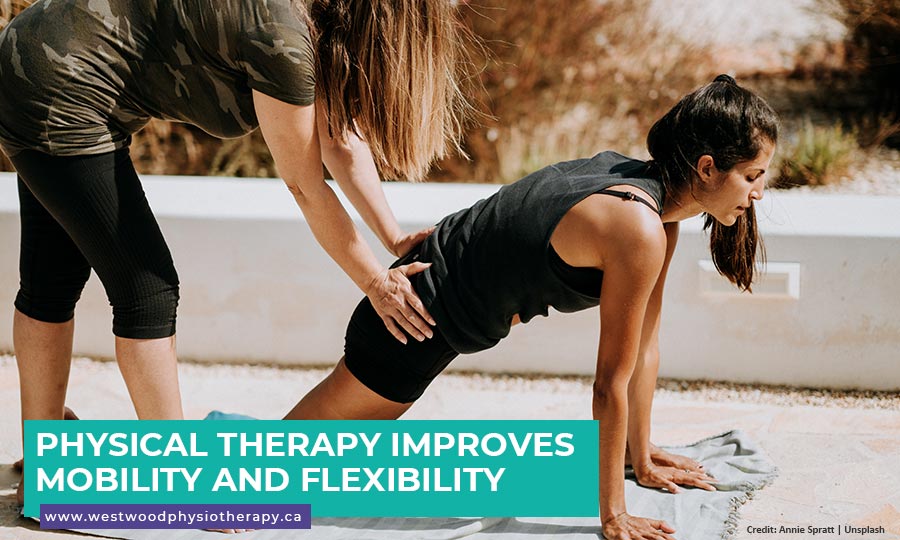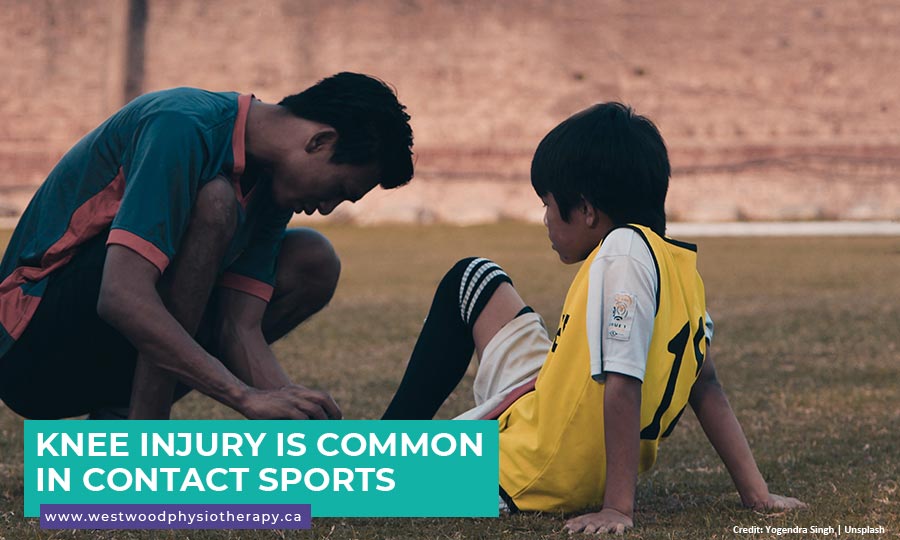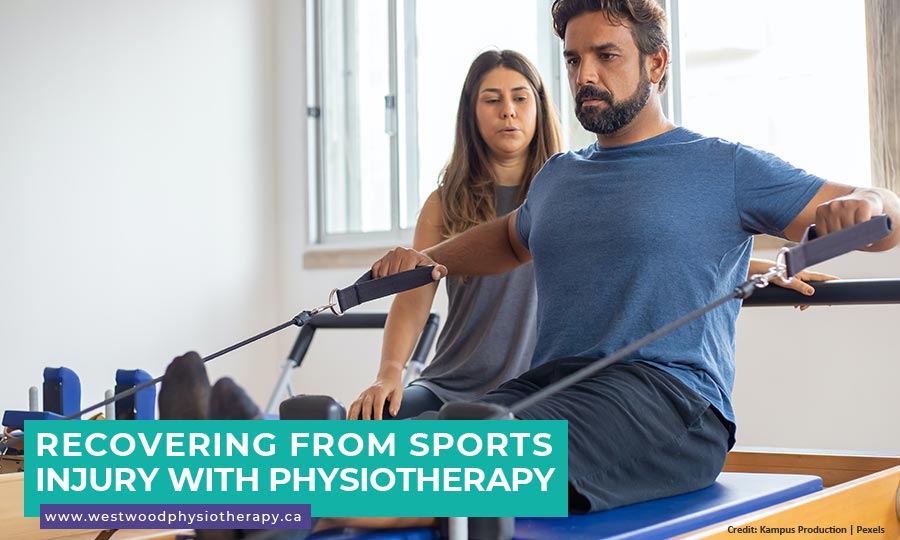There is a reason why professional athletes get their own physical therapists. Injuries are a common occurrence in any sport. Accidents do happen, no matter how hard players strive to avoid them. Many athletes have been unable to practice, participate in games, or even finish their careers due to sports injuries. A few physiotherapy sessions may be all you need to relieve pain, improve their overall health and fitness, and avoid recurrent injuries.
Sports physiotherapy treats musculoskeletal problems induced by sport and exercise. A physiotherapist can incorporate other approaches such as massage, acupuncture, and mobilization techniques to aid rehabilitation. In addition, they will provide exercises to help improve function and limit the risk of future injuries.
Importance of Rehabilitation in Sports Injuries
Sports and physical therapy go hand-in-hand. Here are some of the health benefits of physical therapy for athletes:
- Accelerates Recovery from Injury
Physical therapy’s major purpose is to rehabilitate individuals who have had surgery or have been injured. When you first start physical therapy, a licensed rehabilitation physical therapist will conduct a movement test to assess your physical abilities and limitations to ensure optimal mechanics during particular tasks. The screening includes several motions that test your mobility, stability, balance, and strength.
Your physical therapist will develop a treatment plan to address your unique condition after a comprehensive physical assessment. During your sports injury rehabilitation, they will concentrate on specific weak regions to improve the functionality and assist recovery.
- Eliminates Pain
Serious injuries can have long-term consequences for athletes, even after they have recovered from surgery. The best way to regain your strength and relearn your body’s limits is by working through the discomfort in a controlled environment. Having a team of therapists that engage in a variety of treatment approaches to help you recover may be part of your physical therapy. If you’re in a lot of pain, tell your physical therapists about it so they can help you the best they can. - Relieves Muscle Soreness
People of any age and fitness level experience delayed onset muscular soreness. It frequently affects individuals who are just beginning an exercise regimen or trying out new exercises. Its symptoms might be exacerbated by overtraining, stress, or inadequate nutrition.
A deep tissue massage can help you if you are struggling with this condition. This massage can help you recover faster by improving muscular function. After a few regular sessions of physical therapy for sports injuries, you will be able to work out considerably harder and for longer periods.
- Increases Strength
Physical therapy aims to return you to your pre-injury state while also equipping you with the tools you’ll need to avoid recurrence. To deliver the strongest force, your muscles work together in a chain reaction. If one or more of these areas is weaker than the others, your body may strive to compensate, resulting in harm. The muscles around your injury will be weakened as a result of rest or possibly casts and braces and will require rehabilitative conditioning.
Rebuilding strong muscles is part of working with your physical therapist to regain the full ability of the affected area. This is accomplished by focusing on your goals and areas that require improvement through a therapy plan that best supports you.
- Improves Flexibility

Flexibility is essential for runners, swimmers, football players, gymnasts, and other athletes. However, not everyone’s muscles and joints are flexible. Muscle function can be affected by even minor injuries. A physiotherapist might suggest stretching and strengthening exercises to help with your problems. This results in an increased range of motion and flexibility. It can help you become a better athlete and reduce your chance of injury in the long run.
- Prevents Injuries
Physiotherapy is much more than just pain management and injury treatment. It’s also about avoiding injuries from occurring. Physiotherapists usually advise athletes to perform exercises that will help them become more flexible and increase their range of motion. This enhanced flexibility aids players in avoiding injuries in the future. Furthermore, physiotherapy treats the whole person rather than just the injured area. A qualified therapist can give you tips on how to exercise safely and avoid getting hurt. - Boosts Performance
This type of therapy can help you gain an advantage over your competitors. It aids in the improvement of movement patterns, the correction of muscular imbalances, and the improvement of mobility. Some physiotherapy activities improve operational fitness and movement control. Others help you maintain joint flexibility while strengthening your core and back muscles. As a result, you’ll be more successful in your chosen sport.
Common Injuries That Can Benefit From Physiotherapy
Athletes who participate in physical and contact sports, whether they are amateurs or professionals, are more vulnerable to injury. Fortunately, physiotherapy can help even the most severe conditions.
- Strains
A strain injury occurs when a muscle or tendon is overstretched. One of the ways strains occur is when you suddenly discover you’ve “pulled a muscle.” A muscle can be harmed if it is mistreated, tired, or overused. The injury’s severity ranges from minor to severe.
A strain injury has the following signs and symptoms:
-
- Redness, swelling, or bruising
- Pain
- Muscle or tendon weakness
- Muscle spasms
- Muscle function loss
- Sprains
The most frequent sprain injury is twisted ankles, which occur when people fall or twist unexpectedly. The ligament is overstretched as a result of the rapid impact.
The following are signs and symptoms of a sprain injury:
-
- Pain
- Swelling
- Bruising
- Immobility
- Knee injuries

Knee injuries can either be acute (such as from a rugby tackle, a tumble, or landing awkwardly while playing volleyball) or chronic (such as from prolonged running with bad foot biomechanics or osteoarthritis). Whatever the injury, it usually results in knee discomfort, loss of range of motion, joint stiffness, weakness, and possibly knee instability or clicking, restricting your ability to perform everyday activities.
Physical treatment for knee pain entails a comprehensive evaluation and assessment of the complete lower leg, from hip to foot. Your physical therapist can analyze your knee discomfort and recommend the appropriate exercises to help you reduce pain and increase overall mobility. You could be back running post-ACL surgery in no time.
- Plantar Fasciitis
Plantar fasciitis is frequently observed in sports injury clinics due to poor biomechanics and inappropriate footwear. Without the right arch support, athletes who have flat feet can acquire this problem over time. Plantar fasciitis is common in people who are overweight or who spend a lot of time on their feet.
Your physiotherapist can assist you in releasing the underlying fascia to relieve discomfort and restore correct foot and ankle function.
- Back pain
Back discomfort can be caused by repeated motions, trauma, or problems with the intervertebral discs. Poor sports technique can contribute to these and other problems, as well as acute and chronic lower back pain.
You can regain normal function and pain alleviation by performing the appropriate exercises, stretches, and mobilizations. Having a physiotherapy facility nearby assists you to avoid future injuries while also boosting your athletic abilities.

You don’t have to be a professional athlete to benefit from physiotherapy. Visit a physiotherapist in Guelph through Westwood Physiotherapy and Wellness. Book an appointment by calling us at (519) 341-5161!


